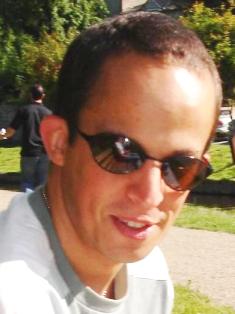 It was literally a day after handing in my EngD thesis, that I began a stint as Post-Doctoral Research Fellow within the Chemical Engineering department. I had spent the final year while writing up my thesis, based at Birmingham, instead of down at Unilever who were the sponsoring company of my EngD. This is partly what enabled the transition into the Post.Doc Fellowship. During my write-up, I got exposure to fellow PhD students and it was also where I got the chance to supervise the lab-work of 12 MSc. students, which was hard work, but an involvement in academia which I greatly enjoyed.
It was literally a day after handing in my EngD thesis, that I began a stint as Post-Doctoral Research Fellow within the Chemical Engineering department. I had spent the final year while writing up my thesis, based at Birmingham, instead of down at Unilever who were the sponsoring company of my EngD. This is partly what enabled the transition into the Post.Doc Fellowship. During my write-up, I got exposure to fellow PhD students and it was also where I got the chance to supervise the lab-work of 12 MSc. students, which was hard work, but an involvement in academia which I greatly enjoyed.
The EngD thesis can be structured in a modular way (i.e. the content from Chapter 1 does not necessarily have to flow directly into that of Chapter 2 or indeed have to relate to it whatsoever. This is an aspect which is very different from how a PhD has to be prepared, where one Chapter almost always has to follow the content of the previous one). The industrial exposure to a real problem which needed answers added to the fact of industrially relevant training given by Unilever; were all invaluable experiences that I was exposed to thanks to the EngD programme.
In my case the subjects of my thesis were the stability of Ice-cream and reformulated whipping creams (hence why I found the ability to split-stream my thesis particularly useful!).
Once my Post.Doc came to an end, Malvern Instruments hired me. I am part of the Applications Department and working on all aspects involved with the new Kinexus rheometer – be it analysing incoming samples, meeting colleagues from our worldwide partner sites, helping with user training and also interacting with worldwide distributors of the Malvern products. Working within the Applications sector I will be able to get to know the entire plethora of products that Malvern carry, an opportunity that I am really looking forward to!
Although I am currently and primarily looking after the Kinexus side of things, I might also sometimes be required to field questions arising from their previous platforms like the Gemini rheometer. It is envisaged that I will also work on an ad hoc basis with Zetasizer equipment and also on instruments like the Morphologi G3, a particle characteriser.
So far, in the very short time I have spent working with the Kinexus rheometer, I have already had the opportunity to analyse such varied products as Inkjet printer inks, adhesives for medical bags, tacky window sealants, greases, cosmetic hair removal waxes, thermo-setting paints, chocolate fondant mousses, food preservation solutions and concentrated food flavourings. There’s never a dull day in the Apps Labs, that’s for sure! The work is incredibly interesting and varied, in that each sample brings with it new and varied challenges and also many-a-time intricate questions that need asking before analysis can begin. The exposure I had during my EngD to two of Malvern’s instruments, in addition to my industrial training – I think helped me in many ways secure my current job.